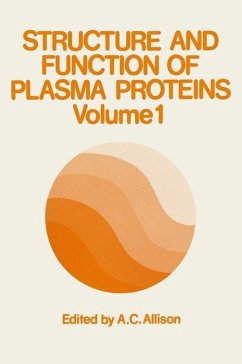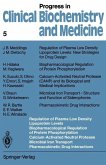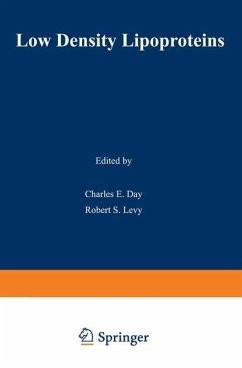Plasma proteins are of interest from many points of view. Biochemists have separated and purified numerous plasma proteins and studied their physical properties, aminoacid composition and sequence, the carbohydrate components of some, and binding of metals, hormones and other materials. Much work has also been carried out on the synthesis, rates of turnover and degradation of plasma proteins. Many plasma proteins show inherited variations, some of which (e.g. those of heptoglobins and transferrins) are common in various human populations while others (e.g. absence of lipoproteins or im munoglobins) are rare but important because of their association with clinical syndromes. Since blood is the most accessible bodily con stituent, geneticists have made good use of serum protein differences as genetic markers in family and population studies. Physiologists have long been interested in plasma proteins in relation to colloid osmotic pressure, transport of lipids, iron, hormones and other materials, the activities of renal glomeruli and tubules, the function of the liver, and many other bodily activities. Plasma proteins are also widely studied in relation to malnutrition and undernutrition, particularly that associated with defective intake of protein.
Bitte wählen Sie Ihr Anliegen aus.
Rechnungen
Retourenschein anfordern
Bestellstatus
Storno








